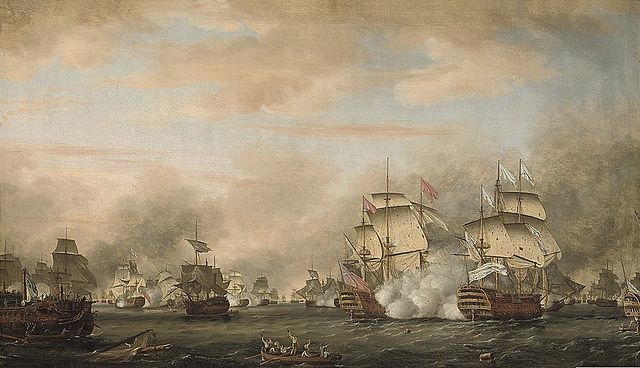
I
In the islet’s museum there is a twisted
wine bottle, crusted with fool’s gold from the iron-
cold depth below the redoubt. It has been listed
variously by experts: one, that a galleon
blown by a hurricane out of Cartagena,
this far east, had bled a trail of gold bullion
and wine from its hold (a view held by many a
diver lowering himself); the other was nonsense
and far too simple: that the gold-crusted bottle
came from a flagship in the Battle of the Saints,
but the glass was so crusted it was hard to tell.
Still, the myth widened its rings every century;
that the Ville de Paris sank there, not a galleon
crammed with imperial coin, and for her sentry,
An octopus-cyclops, its one eye like the moon.
Deep as a diver’s faith but never discovered,
their trust in the relic converted the village,
who came to believe that circling frigates hovered
over the relic, that gulls attacked them in rage.
They kept their faith when the experts’ ended in doubt.
The galleon’s shadow rode over the ruled page
where Achille, rough weather coming, counted his debt
by the wick of his kerosene lamp; the dark ship
divided his dreams, while the moon’s octopus eye
climbed from the palms that lifted their tentacles’ shape.
It glared like a shilling. Everything was money.
Money will change her, he thought, Is this bad living
that make her come wicked. He had mocked the belief
in the wreck ship out there. Now he began diving
in a small shallop beyond the line of the reef,
with spear-gun and lobster-pot.
from Omeros Chapter VIII, part I by Derek Walcott

